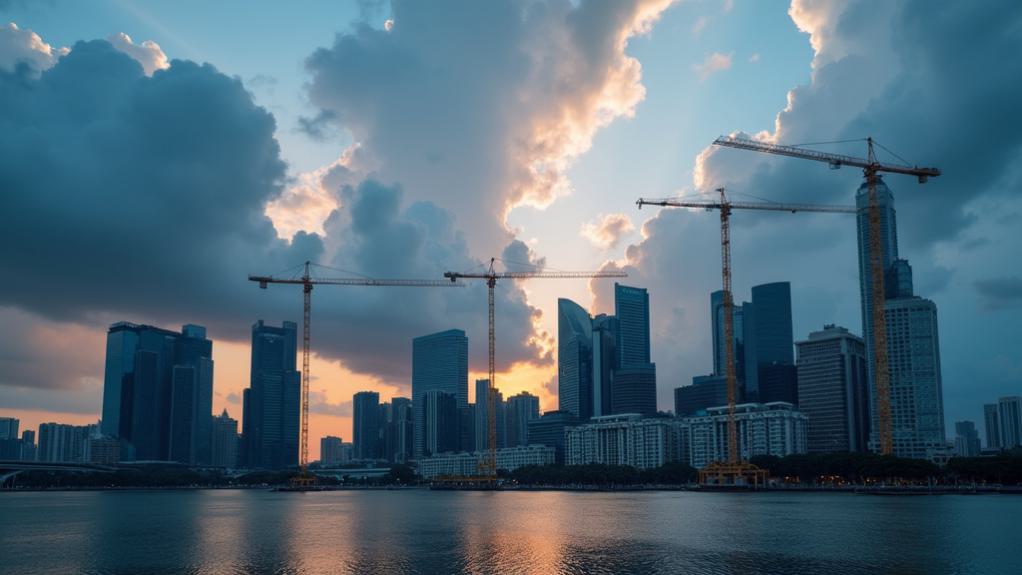While Singapore’s property market has historically shown remarkable resilience, the government has implemented four substantial rounds of cooling measures since December 2021, with the most recent intervention occurring in August 2024, to moderate escalating prices in both public and private residential sectors.
These measures encompass modifications to the Additional Buyer’s Stamp Duty (ABSD), adjustments to loan-to-value (LTV) limits, and implementation of stricter financing regulations, particularly reducing the LTV limit for Housing Development Board (HDB) loans from 80% to 75%.
The cooling measures were introduced in response to concerns regarding potential property bubbles and excessive market speculation. Their primary objective is to maintain housing affordability, prevent speculative bubble formation, and guarantee sustainable long-term growth within the property sector.
The government’s calibrated approach reflects a deliberate strategy to balance market intervention with economic stability, avoiding sharp corrections that could destabilize the broader economy. Minister Desmond Lee has emphasized the need for caution against overcorrection in policy that might trigger sharp market downturns.
Transaction volumes have significantly declined following the implementation of these policies, while property price increases have moderated considerably. The ABSD for foreigners was raised to a substantial 60% rate in April 2023, significantly reducing foreign purchases from 7% to 3-4%. The resale HDB market, in particular, has experienced a slowdown in price appreciation, especially in premium segments.
These trends suggest the measures are achieving their intended effect of dampening excessive demand without triggering a market collapse.
External economic factors, including elevated global interest rates and geopolitical tensions, continue to influence Singapore’s property landscape. Despite these headwinds, the nation’s economic fundamentals remain resilient, allowing policymakers to focus on steady, sustainable market growth rather than responding to short-term volatility.
The outlook toward 2026 indicates a stabilizing market characterized by gradual price normalization rather than precipitous decline.
Government authorities remain vigilant, expressing willingness to implement additional measures if necessary, while currently allowing existing policies sufficient time to take effect. The government has implemented a 15-month wait-out period for private homeowners wishing to purchase resale flats, which has successfully reduced their influence on million-dollar flat transactions.
This measured approach prioritizes sustainable growth and housing affordability, suggesting that Singapore’s property market will likely experience a controlled moderation rather than a crash by 2026.





